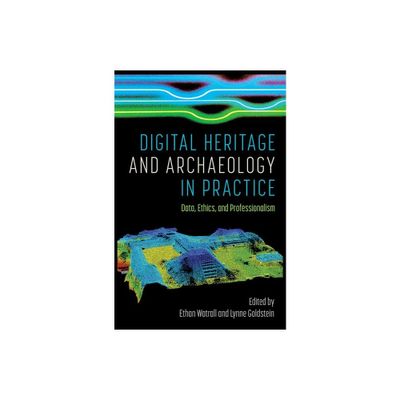Home
Ethnographic Archaeologies: Reflections on Stakeholders and Archaeological Practices
Loading Inventory...
Barnes and Noble
Ethnographic Archaeologies: Reflections on Stakeholders and Archaeological Practices
Current price: $62.00


Barnes and Noble
Ethnographic Archaeologies: Reflections on Stakeholders and Archaeological Practices
Current price: $62.00
Loading Inventory...
Size: OS
*Product Information may vary - to confirm product availability, pricing, and additional information please contact Barnes and Noble
Ethnographic archaeology has emerged as a form of inquiry into archaeological dilemmas that arise as scholars question older, more positivistic paradigms.
Ethnographic Archaeologies
describes diverse methods, objectives, and rationalities currently employed in the making of engaged and collaborative archaeological research.The contributors to this volume, for example, understand ethnographic archaeology variously as a means of critical engagement with heritage stakeholders, as the basis of public-policy debates, as a critical archaeological study of ethnic groups, as the study of what archaeology actually does (as opposed to what researchers often think they are doing) in excavations and surveys, and as a foundation for transnational collaborations among archaeologists. What keeps the term "ethnographic archaeology" coherent and relevant is the consensus among practitioners that they are embarking on a new archaeological path by attempting to engage the present directly and fundamentally.
Ethnographic Archaeologies
describes diverse methods, objectives, and rationalities currently employed in the making of engaged and collaborative archaeological research.The contributors to this volume, for example, understand ethnographic archaeology variously as a means of critical engagement with heritage stakeholders, as the basis of public-policy debates, as a critical archaeological study of ethnic groups, as the study of what archaeology actually does (as opposed to what researchers often think they are doing) in excavations and surveys, and as a foundation for transnational collaborations among archaeologists. What keeps the term "ethnographic archaeology" coherent and relevant is the consensus among practitioners that they are embarking on a new archaeological path by attempting to engage the present directly and fundamentally.


















